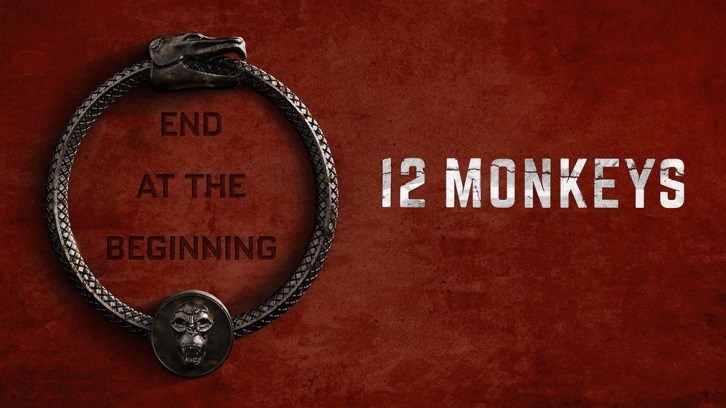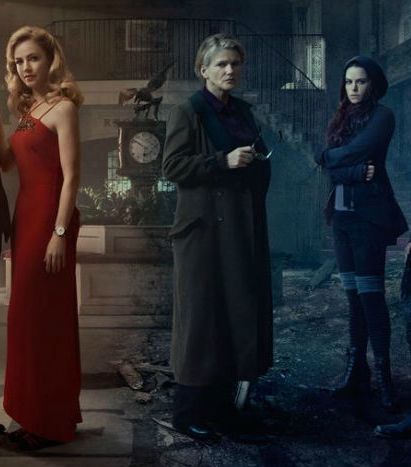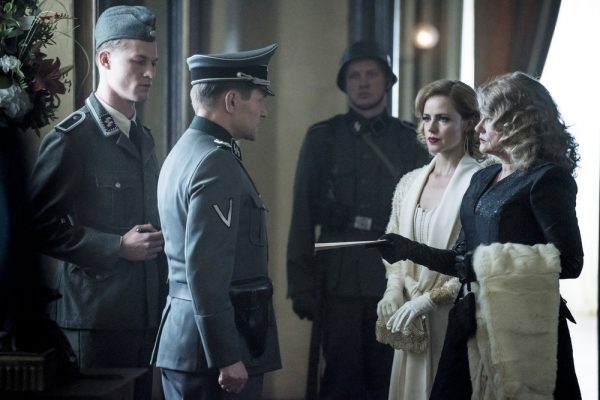Thoughts While Watching Twelve Monkeys, the TV Series, in 2020, Part VI of IX
The point of greatest contention between the two brothers, Cole and Ramse, happens when each are faced with the extermination of their progeny. For Cole, his son is thought to be the Witness, and he fights to save him rather than kill him to alter the future. His mission has been made complicated by instinctive love for his son, an extension of the love he has for Cassie. Ignorance would have been bliss for Cole, who had a chance to kill Athan when he was young. But, once he became responsible for the knowledge that his son was the one called the Witness, he faced a moral conflict. On the one hand, killing the child might undo the future and save human lives. On the other hand, how could he erase the evidence of his love for Cassie?
Love is the thing that interferes with fate. Everything which had been proposed to Cole before his family was in the picture, was designed to challenge fate. Cole singed up for this mission—to kill anyone responsible for releasing the virus, and then disappear. Undoing fate seemed simple and straightforward in the beginning.
Even when his best friend, Ramse, appeals to him based on the value of life in this present age, Cole is unwavering. Ramse’s son, who was born in the chaos of the post-pandemic world, is evidence of life and love and a future for humanity. Ramse becomes convinced by love for his son that what Cole is doing is completely wrong.
Later in the series, once Cole has a reason to fight for the present timeline—a woman he loves, and a son—he is unwilling to continue his mission. However, Cole finds his resolution with the present fate of the world at the same moment when we discover that his son is likely responsible for the virus pandemic. Just when Cole and Ramse could be in alignment, they are again set at odds with one another. Cole acts independent of Project Splinter to save his son, and Ramse sets out to destroy him out of vengeance.
Ramse demonstrates better than any other character the whimsical nature of morality. Morality, it seems, is subjective to knowledge and experience. The knowledge of future consequences drives moral judgment, and experiences—love, family, fate—convince us of the morality of our own actions. Ramse’s moral compass is simple in the beginning of the series. He takes care of himself, and he takes care of Cole. But, as his life grows more complicated, experiencing love, loss, suffering, power, and failure, his morality adapts to justify his actions.
In commentary, Dr. Jones addresses morality objectively, across time: “anything we do, even if we undo it, it shill happened … In God’s eyes.” Even though she has shunned spirituality for the pursuit of science, she is drawn to the convention of a higher moral authority. In season 10, she says, “I do not think that God’s wrath requires my belief.” Dr. Jones’s statement is a reminder that there is a greater consequence of time travel than preventing bad things from happening. She is haunted by the idea that justifying violent actions will damn her soul. But this is a consequence she is willing to abide. It is the ambition of Dr. Jones that pushes the mission to continue beyond any obstacles. She is all in, holding nothing back, to accomplish the goal. She may be a deistic humanist, but science is her envoy. Project Splinter is her ladder to heaven.
12 Monkeys is not just a story about time travel, it is how individuals respond to grief and complexities of life. Cole provides a significant insight into self-empowerment when he says, “everyone’s got two wolves inside of them. One is anger, envy, pride. The other is truth, kindness. Everyday they tear each other apart, but it’s not the better wolf that wins, it’s the one you feed.” The truth that emerges through character development is that everyone has a choice to let the good win. It’s up to each person to feed the better wolf, and not only for themselves, but to team with others who feed the better wolf. In other words, be better, and hang around those who are better.
Twelve Monkeys is currently streaming on Hulu.

Dr. Erica Mongé-Greer, holding a PhD in Divinity from the University of Aberdeen, is a distinguished researcher and educator specializing in Biblical Ethics, Mythopoeia, and Resistance Theory. Her work focuses on justice in ancient religious texts, notably reinterpreting Psalm 82’s ethics in the Hebrew Bible, with her findings currently under peer review.
In addition to her academic research, Dr. Mongé-Greer is an experienced University instructor, having taught various biblical studies courses. Her teaching philosophy integrates theoretical discussions with practical insights, promoting an inclusive and dynamic learning environment.
Her ongoing projects include a book on religious themes in the series Battlestar Galactica and further research in biblical ethics, showcasing her dedication to interdisciplinary studies that blend religion with contemporary issues.




